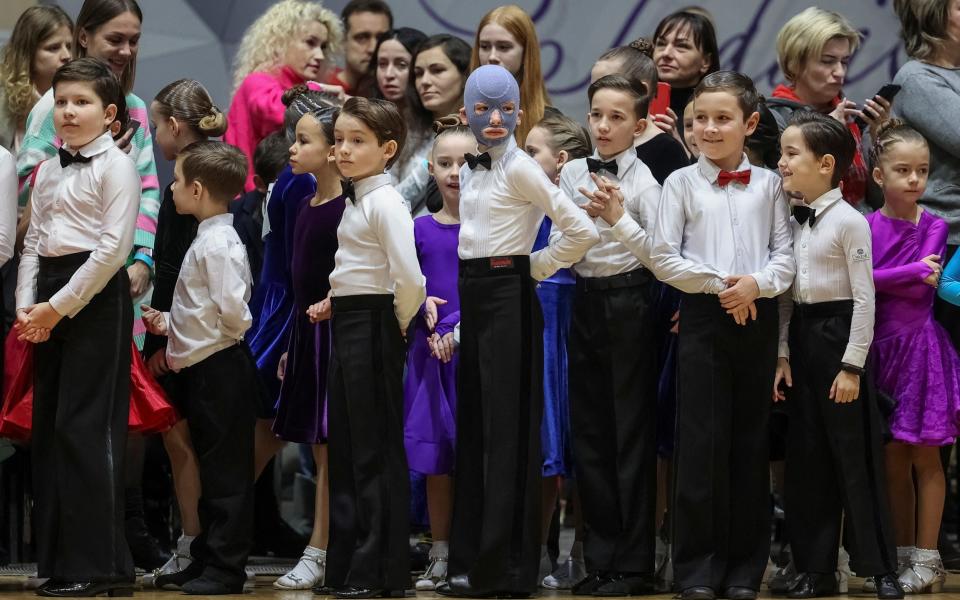Ukrainian boy takes up ballroom dancing after Russian missile attack caused life-threatening burns

A Ukrainian boy who suffered life-threatening burns in a Russian missile attack that also left him with shrapnel in his head has taken up ballroom dancing after receiving treatment in Germany.
Roman Oleksiv, eight, suffered burns to 45 per cent of his body when he narrowly survived the strike on the town of Vinnytsia, in central Ukraine.
It was one of the deadliest single Russian attacks since the start of its invasion, killing 28 people, including Roman’s mother. The pair had been waiting together to see his doctor when the cruise missiles struck.
Roman was severely burned on his head, face and hands in the attack.
After being stabilised in Lviv, he was evacuated to a specialist clinic in the German city of Dresden, where he underwent dozens of operations, mostly skin grafts, over the course of nearly a year.
Now, the resilient boy has returned to school in Ukraine, where he has taken up dancing lessons.

Video footage from Reuters showed Roman dancing in a dress shirt and black bow tie, with compression coverings over his face and hands.
The coverings are worn to decrease the severity of scarring from burns and assist in the healing process.
“We did not know whether he would be able to walk, move his hand or his fingers,” his father, Yaroslav, told Reuters.
“But thanks to [the medics’] work, to Roman’s work, his superhuman efforts ... all this opened the door for us to return to dancing, to playing musical instruments.”
At a performance in Lviv, Roman and his dance partner danced the tango and Charleston as they were cheered on by other schoolchildren. He also performed a solo on the bayan, a type of accordion.
Long recovery to come
Roman has a long recovery ahead of him which will require frequent travel between Ukraine and a clinic in Dresden for further surgeries, as well as hair implants and ear corrections.
“Step by step we will deal with this and everything will be fine,” said Yaroslav, adding that the his son preferred to focus on the path ahead instead of the attack that caused his injuries.
“He is a fantastic boy,” he said. “I think the question is not what he has gone through but how he will go on...I hope that he will continue with the same strength as now to grow, to develop himself.”
The German government says it has spent around €24 billion (£20 billion) in support for Ukraine, which largely consists of weapons and humanitarian aid.
Germany also runs a work shadowing programme in which German doctors who specialise in treating burns victims can share their expertise with Ukrainian counterparts. And it provides support to Ukraine in producing prosthetic limbs for both adults and children.

 Yahoo News
Yahoo News 
